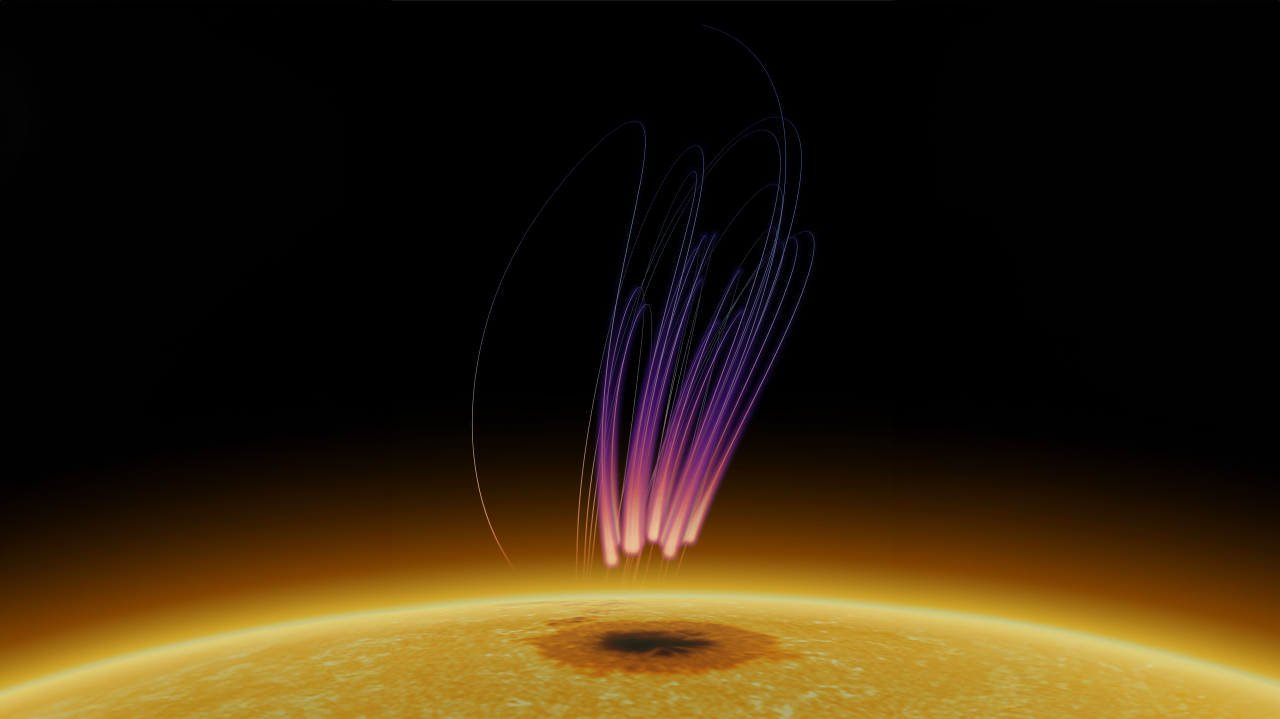Scientists spot aurora-like radio bursts above sunspot

Scientists recently spotted long-lasting radio bursts above a sunspot resembling radio emissions from Earth's auroras - the Northern and Southern lights. Although similar radio emissions have previously been detected from some types of low-mass stars, this discovery introduces the possibility that aurora-like radio emissions may originate from large spots on those stars (starspots) in addition to the previously proposed auroras in their polar regions.
These radio bursts were detected about 25,000 miles (40,000 km) above a sunspot and they lasted for over a week. The discovery could help scientists better understand our Sun and other distant stars that produce similar emisisons.
"This sunspot radio emission represents the first detection of its kind," said Sijie Yu of the New Jersey Institute of Technology, Newark, who is the lead author of a paper reporting the discovery in the January 2024 issue of Nature Astronomy. The research was first published online in November 2023.
These emissions have other unique features such as their spectra, which refers to their intensity at different wavelengths, and their polarization, which pertains to the angle or direction of the radio waves. These characteristics are remarkably similar to the radio emissions that occur in the polar regions of Earth and other planets with auroras.
"The discovery excites us as it challenges existing notions of solar radio phenomena and opens new avenues for exploring magnetic activities both in our Sun and in distant stellar systems," Yu said.
The team plans to re-examine other solar radio bursts to determine if some previously detected solar bursts appear to be similar to the aurora-like radio bursts they found.
This research was supported in part by a NASA Early Career Investigator Program (ECIP) grant awarded to the New Jersey Institute of Technology.
- READ MORE ON:
- sunspot
- aurora-like radio bursts
- auroras
- starspots










